By Ogova Ondego
Published October 17, 2016
 A music genre that sprang up in the Tanzanian metropolis of Dar es Salaam some 20-25 years ago, continues to capture the imagination of the world with its airing on BBC World Service.
A music genre that sprang up in the Tanzanian metropolis of Dar es Salaam some 20-25 years ago, continues to capture the imagination of the world with its airing on BBC World Service.
Ladies and gentlemen, please allow me to declare that I am an ‘interested party’; that I ‘love’ Bongo Flava that is also variously referred to as Mziki wa kizazi kipya (music for the next generation), Mziki wa kufoka (Suffocation music) or Mziki wa fujo (Chaotic music).
RELATED:Bongo Flava Artists Embrace Music Streaming
British Broadcasting Corporation (BBC)’s monthly programme, Global Beats, has in mid October given prominence to this music style that is brewed in the ‘Haven of Peace’ by and with the young generation for the world.
Presenter Salim Kikeke, a Tanzanian national who, like me, appears to be fascinated by this ‘fresh’ sound that is attracting attention in France, Germany, USA, Nigeria, South Africa and Kenya, takes a journey into the emergence and evolution of Mziki wa kizazi kipya. Kikeke traces the music incorporating hip hop, Hindi film sounds, taraab, mziki wa dansi, dancehall beats and traditional African rhythms into Bongo Flava.
RELATED:The Rise and Rise of Tanzanian Bongo Flava Music
Kikeke talks to pioneers of the Bongo Flava genre—artists and producers—as well as up-and-coming performers—but no broadcasters or promoters!—as he plays rhythmical music to illustrate the points under discussion.
 Insights from artists like Dully Sykes, Fid Q and Professor Jay, producer P Funk rising stars of Bongo Flava such as Clara Pink and Vanessa Mdee make the programme quite informative, educative and entertaining.
Insights from artists like Dully Sykes, Fid Q and Professor Jay, producer P Funk rising stars of Bongo Flava such as Clara Pink and Vanessa Mdee make the programme quite informative, educative and entertaining.
But the programme is much more than just the music that combines rap, hip-hop, R & B, taarab, Hindi film music and traditional Tanzanian beats. Without belabouring the point, Kikeke talks about the Cold War forced on the world by United States of America (the West) and the former Union of Soviet Socialist Republics (the East) and Tanzania’s Ujamaa Socialist policies and their effect on the rise of Bongo Flava.
RELATED:Kenya Seeks Strategy for Preserving and Popularising Traditional Folk Music
Focusing on the growth of Bongo Flava, Kikeke steers clear of controversies, let alone following rabbit trails, in his 50-minute programme.
 Granted, Kikeke talks about the end of the Cold War in 1989. Granted, he plays some music. But Kikeke doesn’t tackle pluralism of thought, self expression, digital technology and the decline of the influence of Kenya’s Nairobi as the centre of the music business in East and Central Africa.
Granted, Kikeke talks about the end of the Cold War in 1989. Granted, he plays some music. But Kikeke doesn’t tackle pluralism of thought, self expression, digital technology and the decline of the influence of Kenya’s Nairobi as the centre of the music business in East and Central Africa.
One may also fault Kikeke for referring to Bongo Flava merely as ‘Tanzanian hip-hop’; it is much more than this.
Oh, why does Kikeke whose rich baritone enriches the programme not feature the current face of Bongo Flava—the likes of Diamond Platinumz and Ali Kiba—In the programme? He also does not mention the collaboration of Nigerian, South African and Kenyan musicians with the likes of Diamond Platinumz. Also glossed over is the issue of Kenyan gospel musicians—Willy Paul, Bahati and Gloria Muliro—who have adopted Bongo Flava as their own style.
RELATED:Uganda’s Live Band Music Scene on Steady Growth
Would you have liked Salim Kikeke to have mentioned that Dar es Salaam–built in 1865 by Sultan Majid bin Said of Oman whose headquarters had moved to Zanzibar–is a melting pot of Arabic, Indian, African and European influences that have also influenced Bongo Flava? Would you have wished that Kikeke explained why Dar is referred to as ‘Bongo’ or a place a non-enterprising person can’t live in? ‘Abode of peace’? ‘Home of peace’? But how can a haven of peace also put pressure on inhabitants to either be industrious or ship out? A contradiction? Maybe.
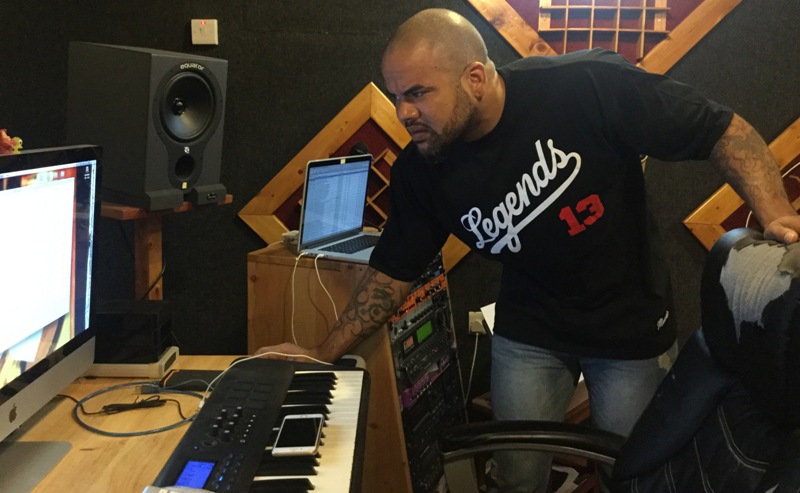 But, no; this article isn’t just about criticising what the programme doesn’t cover.
But, no; this article isn’t just about criticising what the programme doesn’t cover.
Folks, did you know that Bongo Radio, the self-proclaimed ‘best internet station for Bongo Flava’, is based not in Dar but in Chicago, Illinois, USA?
Did you also know this programme on the multimedia BBC that broadcasts via radio, television and online, is likely to be received by more than the 348 million weekly listeners around the world?
RELATED:Copying Undermines Kenya’s Music Creativity
 This is exciting news. Coming hot on the heels of the news that Bongo Flava artists are embracing music streaming via a platform provided by Tigo Tanzania that says that music streaming is not only growing rapidly globally but that it is also the second most popular mobile phone feature in sub-Saharan Africa.
This is exciting news. Coming hot on the heels of the news that Bongo Flava artists are embracing music streaming via a platform provided by Tigo Tanzania that says that music streaming is not only growing rapidly globally but that it is also the second most popular mobile phone feature in sub-Saharan Africa.
Consequently, the telecom says it has introduced its Tigo Music Platform to market the work of Tanzanian musicians locally and abroad.
RELATED:South Africa’s Top Afro-Pop Music Group Artist Goes Solo, Releases Eclectic Album
Tigo has partnered with Deezer, a France-based international music streamer to provide Tanzanians with the service it calls “unlimited music experience that offers access to about 36 million music tracks worldwide.”
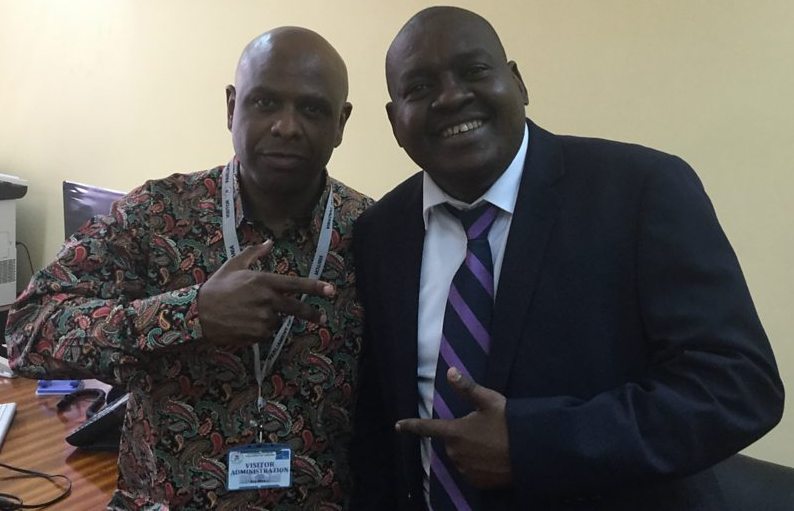
The BBC Global Beats programme on Tanzanian Bongo Flava was first put on air on October 15, 2016 and repeated the following day. It can be heard online. Come on. Have a listen. I just wish it played much more music. Don’t you agree?
The post East Africa’s Kiswahili Rhythms Air on BBC appeared first on ArtMatters.Info.
 A British reggae superstar and a leading US American trumpeter have performed at a charity jazz festival in the Ugandan capital, Kampala.
A British reggae superstar and a leading US American trumpeter have performed at a charity jazz festival in the Ugandan capital, Kampala. “Now it is back to live music and if you can play then play. I think that is where it should be. I cooperate with everybody, wherever and whenever so long as he has a beat,” Rountree said.
“Now it is back to live music and if you can play then play. I think that is where it should be. I cooperate with everybody, wherever and whenever so long as he has a beat,” Rountree said. Not to be left out at the concert were Ugandan legends Moses Matovu, Tony Ssenkebejje and Eddie Ganja who opened the live performances with Twali Twagalana, Amazzi Genyama, Eyali Akwagala, and Hanifa, a rendition of Johnny Bokelo’s Tambola na Mokili.
Not to be left out at the concert were Ugandan legends Moses Matovu, Tony Ssenkebejje and Eddie Ganja who opened the live performances with Twali Twagalana, Amazzi Genyama, Eyali Akwagala, and Hanifa, a rendition of Johnny Bokelo’s Tambola na Mokili. An annual
An annual 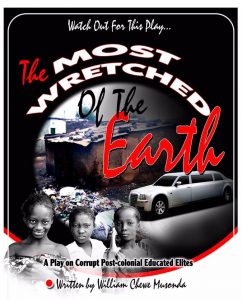 Among the plays to be staged at the event whose full festival pass costs USh30000 and USh1000 per student are The Most Wretched of the Earth by William Chewe Musonda of Zambia; Kawuna, You’re It! by Coutinho Kemiyondo and Blood by Judith Lucy Adong both of Uganda; Mourning Sun by Antu Yacob of Ethiopia/USA; and Allos: The Story of Carlos Bulosan that is Written and Performed by Giovanni Ortega of USA.
Among the plays to be staged at the event whose full festival pass costs USh30000 and USh1000 per student are The Most Wretched of the Earth by William Chewe Musonda of Zambia; Kawuna, You’re It! by Coutinho Kemiyondo and Blood by Judith Lucy Adong both of Uganda; Mourning Sun by Antu Yacob of Ethiopia/USA; and Allos: The Story of Carlos Bulosan that is Written and Performed by Giovanni Ortega of USA.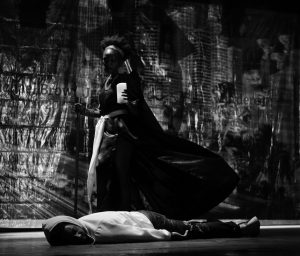 Adong’s Blood tackles the story of the now all familiar issue of white police officers shooting young black men in US America ‘for the crime of looking suspicious’.
Adong’s Blood tackles the story of the now all familiar issue of white police officers shooting young black men in US America ‘for the crime of looking suspicious’. The event is set to showcase movies in all kinds of formats, categories and genres. The highlight of the event is exhibiting some of the best possible films for children, youth and family. The six-day long programme includes film exhibition and competition, story-telling, theatre, music, dance, art exhibition and media literacy and talent exposition seminars and workshops.
The event is set to showcase movies in all kinds of formats, categories and genres. The highlight of the event is exhibiting some of the best possible films for children, youth and family. The six-day long programme includes film exhibition and competition, story-telling, theatre, music, dance, art exhibition and media literacy and talent exposition seminars and workshops. An event that seeks to strengthen
An event that seeks to strengthen  Deweyi, who describes her music as African contemporary music that blends traditional music with an urban touch, gave the audience a taste of her songs Naabirya (You can’t eat and have your cake), Pit of Love, Sun in the Rain, Okawamunabi (Don’t Lose Hope) and Christmas Song. She has so far recorded two albums titled Sun in the Rain and Yolele that were released in 2014 and 2015, respectively.
Deweyi, who describes her music as African contemporary music that blends traditional music with an urban touch, gave the audience a taste of her songs Naabirya (You can’t eat and have your cake), Pit of Love, Sun in the Rain, Okawamunabi (Don’t Lose Hope) and Christmas Song. She has so far recorded two albums titled Sun in the Rain and Yolele that were released in 2014 and 2015, respectively. As to how it feels being among the finalists in this year’s Stage Coach Season 3, Chimey Buka of Bantu Clan says, “It’s an honour and privilege to join a fast growing authentic music family and it’s always a step that I have always wanted Bantu Clan to take so that we remain rooted instead of getting lost in the Kampala music industry. It is real when they say that your surroundings and the minds you hang out with influences you. I am glad we made it through this transformative experience.”
As to how it feels being among the finalists in this year’s Stage Coach Season 3, Chimey Buka of Bantu Clan says, “It’s an honour and privilege to join a fast growing authentic music family and it’s always a step that I have always wanted Bantu Clan to take so that we remain rooted instead of getting lost in the Kampala music industry. It is real when they say that your surroundings and the minds you hang out with influences you. I am glad we made it through this transformative experience.” A
A  “This is our new framework for working between Kenya, Uganda, Tanzania, Rwanda and Ethiopia on one hand and the UK on the other,” Reilly said. “East Africa Arts will connect new audiences to new art, share skills of creatives and ignite partnerships between the creative sectors of the UK and the East Africa region.”
“This is our new framework for working between Kenya, Uganda, Tanzania, Rwanda and Ethiopia on one hand and the UK on the other,” Reilly said. “East Africa Arts will connect new audiences to new art, share skills of creatives and ignite partnerships between the creative sectors of the UK and the East Africa region.”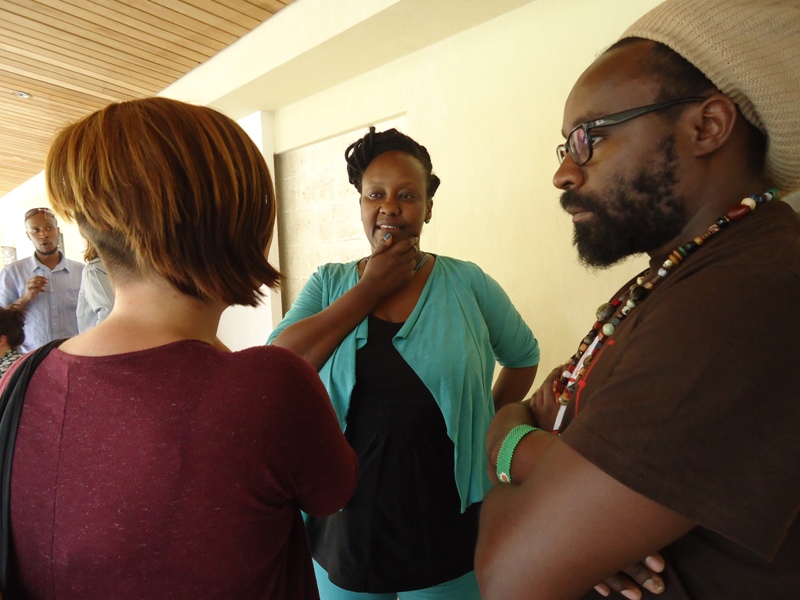
 Jarrett-Macauley, a London-based writer, academic and broadcaster of Sierra Leonean heritage,shared on her art that focused on sharing family ideals through story telling using William Shakespeare’s King Lear play.She had since partnered with Muthoni Garland of Nairobi’s Story Moja literary initiative.
Jarrett-Macauley, a London-based writer, academic and broadcaster of Sierra Leonean heritage,shared on her art that focused on sharing family ideals through story telling using William Shakespeare’s King Lear play.She had since partnered with Muthoni Garland of Nairobi’s Story Moja literary initiative. The grantees shared on the outputs of their projects, mentioning that their biggest challenge is working across cultures.
The grantees shared on the outputs of their projects, mentioning that their biggest challenge is working across cultures.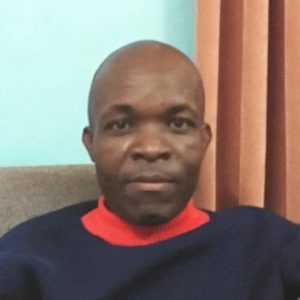
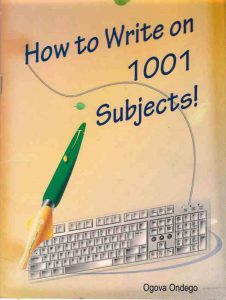 Honesty–as of one writing only what he has experienced firsthand or through observation, research and interviews–should also be adhered to in writing.
Honesty–as of one writing only what he has experienced firsthand or through observation, research and interviews–should also be adhered to in writing.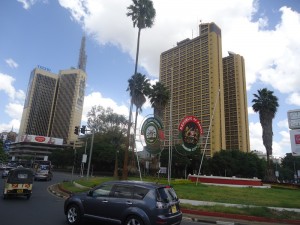 It then explains how each art form–fine art, literary art, music art, screen art, architecture—is analysed. Analysis of movies is given special treatment, with a prominence that expounds it into interesting segments that are not only beneficial for a critic, a writer, a journalist and a judge or adjudicator of film: definition, history, language, genres, and the differences and similarities among Hollywood (USA), Bollywood (India) and Nollywood (Nigeria and Africa) aesthetics.
It then explains how each art form–fine art, literary art, music art, screen art, architecture—is analysed. Analysis of movies is given special treatment, with a prominence that expounds it into interesting segments that are not only beneficial for a critic, a writer, a journalist and a judge or adjudicator of film: definition, history, language, genres, and the differences and similarities among Hollywood (USA), Bollywood (India) and Nollywood (Nigeria and Africa) aesthetics. A leading South African Afro-pop singer has just marked her two decades in music with four tracks off her 13-track album being used in restaurants across Britain.
A leading South African Afro-pop singer has just marked her two decades in music with four tracks off her 13-track album being used in restaurants across Britain. Besides art, Thedi is also an active social activist championing the rights of children; women; migrant workers; rape victims; patients of cancer, diabetes and AIDS.
Besides art, Thedi is also an active social activist championing the rights of children; women; migrant workers; rape victims; patients of cancer, diabetes and AIDS. What you don’t (But Should!) know about Afro-Pop Singer Florence Matshediso Mholo:
What you don’t (But Should!) know about Afro-Pop Singer Florence Matshediso Mholo: Before going solo, Tshedi and her group, Malaika, won the following awards:
Before going solo, Tshedi and her group, Malaika, won the following awards: A policeman in Kenya has left many observers wondering whether uniformed members of the service (yes, the 2010 constitution changed it from a ‘force’ to a ‘service’!) should have an
A policeman in Kenya has left many observers wondering whether uniformed members of the service (yes, the 2010 constitution changed it from a ‘force’ to a ‘service’!) should have an  Unlike Government Permanent Secretary (PS) Barlow who takes on the role of the driver who drives the PS to an important meeting, AP officer Ngare speaks on behalf of Police Bodyguards, himself.
Unlike Government Permanent Secretary (PS) Barlow who takes on the role of the driver who drives the PS to an important meeting, AP officer Ngare speaks on behalf of Police Bodyguards, himself.
 Imagine unapoongea haya yote niko nyuma yako kama mlinzi (bodyguard). Hebu fikiria naingia job mapema na kutoka late usiku wa manane.watoto wangu hawanijui maana natoka asubuhi na nikirudi washalala. Weekends hautaki niwe na familia yangu wataka nikupeleke kwenye starehe ujienjoy na wenzako. Mkutanapo kwenye starehe zenu sisi twabaki kwa magari tukinyosha viti tukilala tukisubiri simu zenu. Wala lunch ya 7k, pesa yatosha kulipia mtoi wangu shule. Dinner pekee yalipia rent familia yangu. Uingiapo kwako outside kuna colleague yuapigwa na baridi kukupa security. Hata haumjui kwa jina. Usiku usikiapo risasi zikilia wampigia simu na kutaka kujua ni nini mbaya. Nikichelewa kufika kazini asubuhi wapigia wadosi wangu na kuwaambia uwongo wote vile mimi ni mbaya.
Imagine unapoongea haya yote niko nyuma yako kama mlinzi (bodyguard). Hebu fikiria naingia job mapema na kutoka late usiku wa manane.watoto wangu hawanijui maana natoka asubuhi na nikirudi washalala. Weekends hautaki niwe na familia yangu wataka nikupeleke kwenye starehe ujienjoy na wenzako. Mkutanapo kwenye starehe zenu sisi twabaki kwa magari tukinyosha viti tukilala tukisubiri simu zenu. Wala lunch ya 7k, pesa yatosha kulipia mtoi wangu shule. Dinner pekee yalipia rent familia yangu. Uingiapo kwako outside kuna colleague yuapigwa na baridi kukupa security. Hata haumjui kwa jina. Usiku usikiapo risasi zikilia wampigia simu na kutaka kujua ni nini mbaya. Nikichelewa kufika kazini asubuhi wapigia wadosi wangu na kuwaambia uwongo wote vile mimi ni mbaya. Bungeni hautetei maslahi yangu, wajua mshahara wangu hata sio nusu ya entertainment allowance yako. Je, mheshimiwa wajua kuwa mimi ni mwanadamu kama wewe? Wewe ukiumia hata kama ni headache wabebwa na ndege hadi ngambo kwa matibabu zaidi, mimi hata hiyo ndege siijui vile inakaa ndani, sijui kama iko na steering, brake, clutch ama gears…huwa naiona tu kwa TV, gazeti na maybe nikikupeleka airport naona ikitake off.
Bungeni hautetei maslahi yangu, wajua mshahara wangu hata sio nusu ya entertainment allowance yako. Je, mheshimiwa wajua kuwa mimi ni mwanadamu kama wewe? Wewe ukiumia hata kama ni headache wabebwa na ndege hadi ngambo kwa matibabu zaidi, mimi hata hiyo ndege siijui vile inakaa ndani, sijui kama iko na steering, brake, clutch ama gears…huwa naiona tu kwa TV, gazeti na maybe nikikupeleka airport naona ikitake off. A Kenyan artist who says she honed her music skills through writing
A Kenyan artist who says she honed her music skills through writing  Referring to her pop and RnB music recording as “a totally new side of me,” Victoria Kimani said, “My background is in song writing. I used to write pop and RnB songs for for artists in the States and the UK. I grew tired of giving my songs away.”
Referring to her pop and RnB music recording as “a totally new side of me,” Victoria Kimani said, “My background is in song writing. I used to write pop and RnB songs for for artists in the States and the UK. I grew tired of giving my songs away.” Kimani, the last of three siblings, is said to have begun singing at the age of nine but that it was not till seven years later, at 16, when she began backing-up church choir members while writing songs for others.
Kimani, the last of three siblings, is said to have begun singing at the age of nine but that it was not till seven years later, at 16, when she began backing-up church choir members while writing songs for others. “She was a person who spoke her mind and who could not stand mediocrity. She was proud of being an African. Her music was more about Africa’s social issues and stories. It was the voice of an African woman proud of her heritage,” is the tribute singer Sali Oyugi pays to
“She was a person who spoke her mind and who could not stand mediocrity. She was proud of being an African. Her music was more about Africa’s social issues and stories. It was the voice of an African woman proud of her heritage,” is the tribute singer Sali Oyugi pays to  “I have always played my music by ear and I could do music by Michael Jackson within the first year of getting my piano,” the singer who attended Nairobi’s Kenya High School tells Bill Odidi in a Daily Nation newspaper article.
“I have always played my music by ear and I could do music by Michael Jackson within the first year of getting my piano,” the singer who attended Nairobi’s Kenya High School tells Bill Odidi in a Daily Nation newspaper article. “I think Kisima Award must reflect our capacity. If you make it that competitive, it will force all these people to grow in music. Nowadays people are just going into cubicles with a tiny recording system and coming out with catchy beats, a catchy phrase and they are number one on Kiss. They are not even musicians because those catchy phrases don’t even have to be musical. And then you take them to Kisima Award and judge them against serious musicians. It’s at that point that I will withdraw from Kisima as to whether I’ll be interested in participating in Kisima again,” Abura had told freelance writer Angela Kamanzi in 2003.
“I think Kisima Award must reflect our capacity. If you make it that competitive, it will force all these people to grow in music. Nowadays people are just going into cubicles with a tiny recording system and coming out with catchy beats, a catchy phrase and they are number one on Kiss. They are not even musicians because those catchy phrases don’t even have to be musical. And then you take them to Kisima Award and judge them against serious musicians. It’s at that point that I will withdraw from Kisima as to whether I’ll be interested in participating in Kisima again,” Abura had told freelance writer Angela Kamanzi in 2003. Using her well deserved and earned public position, Abura called society to action on national issues; she was vocal, condemning corruption and inefficient leaders. For instance, she used her Social Justice Movement group on Facebook to condemn the Kenya’s government for neglecting its world-beating athletes during the Olympics in the Brazilian city of Rio de Janeiro in 2016.
Using her well deserved and earned public position, Abura called society to action on national issues; she was vocal, condemning corruption and inefficient leaders. For instance, she used her Social Justice Movement group on Facebook to condemn the Kenya’s government for neglecting its world-beating athletes during the Olympics in the Brazilian city of Rio de Janeiro in 2016. But perhaps nothing pays better tribute to Lydia Achieng Abura than Women in the Public Space, a study by Fred Ochoti from the Faculty of Media and Culture of the University of Nairobi in 2012 that focuses on her music as one that is ’emancipatory’: serving to denounce cultural and patriarchal yokes of oppression, and campaigning for social, economic, political and cultural change and independence. The analysis concludes that Abura’s music sets agenda around issues of importance in the public space.
But perhaps nothing pays better tribute to Lydia Achieng Abura than Women in the Public Space, a study by Fred Ochoti from the Faculty of Media and Culture of the University of Nairobi in 2012 that focuses on her music as one that is ’emancipatory’: serving to denounce cultural and patriarchal yokes of oppression, and campaigning for social, economic, political and cultural change and independence. The analysis concludes that Abura’s music sets agenda around issues of importance in the public space. Two Kenyan bands are set to perform at the annual
Two Kenyan bands are set to perform at the annual  Music is Our Weapon, a documentary film about Sarabi that talks about the power of music as a tool for social change, was released in Nairobi in February 2016.
Music is Our Weapon, a documentary film about Sarabi that talks about the power of music as a tool for social change, was released in Nairobi in February 2016. By aligning their unwavering dedication to the do-it-yourself work ethic with a signature sound, this fusion creates a fresh musical style they like to call the Afro-Poetry-Experience.
By aligning their unwavering dedication to the do-it-yourself work ethic with a signature sound, this fusion creates a fresh musical style they like to call the Afro-Poetry-Experience. Some of best performers in the entertainment and sports world in Uganda are set to have their voices heard around the world as British multimedia broadcaster pitches tent in the country for a week.
Some of best performers in the entertainment and sports world in Uganda are set to have their voices heard around the world as British multimedia broadcaster pitches tent in the country for a week. Coinciding with the Africa Cup of Nations (AFCON) that kicks off in four venues in Gabon on January 14, BBC shall present special reports from the tournament in which Ugandan national team, Uganda Cranes, is participating for the first time since 1978. BBC is expected to celebrate the final Group D match pitting Uganda versus Mali on where we’ll join Ugandan fans for the Cranes’ final group match against Mali.Uganda is the only eastern African country in the continental tournament.
Coinciding with the Africa Cup of Nations (AFCON) that kicks off in four venues in Gabon on January 14, BBC shall present special reports from the tournament in which Ugandan national team, Uganda Cranes, is participating for the first time since 1978. BBC is expected to celebrate the final Group D match pitting Uganda versus Mali on where we’ll join Ugandan fans for the Cranes’ final group match against Mali.Uganda is the only eastern African country in the continental tournament.
 A rising Ugandan guitarist and crooner who describes his music style as afro-soul has released a debut album.
A rising Ugandan guitarist and crooner who describes his music style as afro-soul has released a debut album. Mumulette is an adopted Kiganda traditional wedding song calling for the bride to be brought out of the father’s house to the bridegroom.
Mumulette is an adopted Kiganda traditional wedding song calling for the bride to be brought out of the father’s house to the bridegroom. Mugabi, who was born on September 12, 1992 in Kampala, holds a Bachelor of Arts degree in music from Makerere University. He burst onto the national musical stage as one of the top contestants in the Coke Rated Next Uganda competition in 2012. This is an annual competition aimed at identifying fresh musical talent in the country.
Mugabi, who was born on September 12, 1992 in Kampala, holds a Bachelor of Arts degree in music from Makerere University. He burst onto the national musical stage as one of the top contestants in the Coke Rated Next Uganda competition in 2012. This is an annual competition aimed at identifying fresh musical talent in the country.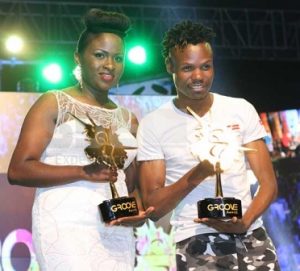 The 12th annual
The 12th annual  Can a contest in which players connected to the organizers participate be taken to be a level playing field, let alone a fair competition? DJ Mo, the official DJ of Mo Sound, for instance, has been awarded the DJ of the Year award by Groove Awards more than any other DJ over the 12 times the awards have been held. Crossover, the TV gospel show that DJ Mo presides over as DJ and presenter has scooped the award of TV Show of the Year the most in the history of Groove Awards.
Can a contest in which players connected to the organizers participate be taken to be a level playing field, let alone a fair competition? DJ Mo, the official DJ of Mo Sound, for instance, has been awarded the DJ of the Year award by Groove Awards more than any other DJ over the 12 times the awards have been held. Crossover, the TV gospel show that DJ Mo presides over as DJ and presenter has scooped the award of TV Show of the Year the most in the history of Groove Awards. Safaricom awarded brand new iPhone 7s worth Sh76000 (US$760) and Sh10000 (US$100) worth of airtime to both the Female and the Male Artist of the Year.
Safaricom awarded brand new iPhone 7s worth Sh76000 (US$760) and Sh10000 (US$100) worth of airtime to both the Female and the Male Artist of the Year. Talent to Watch – MC Nebb
Talent to Watch – MC Nebb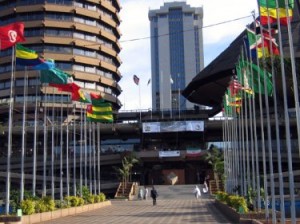 East and Central Africa Artist of the Year– Gisubizo Ministries (Rwanda)
East and Central Africa Artist of the Year– Gisubizo Ministries (Rwanda) When he took a break from his routine entertainment calendar in order to devote his time to worship, meditation and reflection during the annual period of fasting known as Ramadhan in June 2016, his fans waited with bated breath for the fast to end so their idol could return to them. But when two months elapsed after the fast without him returning, speculation led to rumour-mongering and tongue-wagging. But that still didn’t bring the award-winning Taarab music composer, singer and band leader to the popular entertainment joints of the Tanzania’s commercial capital,
When he took a break from his routine entertainment calendar in order to devote his time to worship, meditation and reflection during the annual period of fasting known as Ramadhan in June 2016, his fans waited with bated breath for the fast to end so their idol could return to them. But when two months elapsed after the fast without him returning, speculation led to rumour-mongering and tongue-wagging. But that still didn’t bring the award-winning Taarab music composer, singer and band leader to the popular entertainment joints of the Tanzania’s commercial capital,  This incredulity brought the award-winning entertainer out of the Masjid Taqwa mosque in Ilala Bungoni neighbourhood of Dar on a Friday afternoon to make a career-turning announcement on August 12, 2016: he would no longer perform Taarab music.
This incredulity brought the award-winning entertainer out of the Masjid Taqwa mosque in Ilala Bungoni neighbourhood of Dar on a Friday afternoon to make a career-turning announcement on August 12, 2016: he would no longer perform Taarab music. Mwinyi had told us in an interview in Dar that his interest in Taarab music had grown from listening to his mother, a member of a revered classical Taarab orchestra known as Culture Musical Club in Zanzibar.
Mwinyi had told us in an interview in Dar that his interest in Taarab music had grown from listening to his mother, a member of a revered classical Taarab orchestra known as Culture Musical Club in Zanzibar. But he already had an answer: “Kwa sasa nitaimba kaswida zenye mafundisho ya dini,” (I shall now concentrate on singing songs with religious teachings), said the artist whose foray into the arts started as a stage actor in Zanzibar, the home of classical Taarab where he was born in 1977 and grew up.
But he already had an answer: “Kwa sasa nitaimba kaswida zenye mafundisho ya dini,” (I shall now concentrate on singing songs with religious teachings), said the artist whose foray into the arts started as a stage actor in Zanzibar, the home of classical Taarab where he was born in 1977 and grew up. A Grammy Award-winning reggae family band has expressed its love for Kenya and pledged to spend more time in the East African country.
A Grammy Award-winning reggae family band has expressed its love for Kenya and pledged to spend more time in the East African country. Morgan Heritage performed at the Nyayo National Stadium in the Kenyan capital, Nairobi, in October 2015.The performance seems to have left a big impression on the family band whose Morgan Heritage Live in Kampala Concert thrilled reggae fans gathered at the Lugogo Cricket Oval on April 13, 2017.
Morgan Heritage performed at the Nyayo National Stadium in the Kenyan capital, Nairobi, in October 2015.The performance seems to have left a big impression on the family band whose Morgan Heritage Live in Kampala Concert thrilled reggae fans gathered at the Lugogo Cricket Oval on April 13, 2017. The main opening act was Jemere Morgan, son to ‘Gramps’ Morgan, who played songs off their 2017 album, Transition, that included Try Jah Love, Happy on Radio and International Love, among others.
The main opening act was Jemere Morgan, son to ‘Gramps’ Morgan, who played songs off their 2017 album, Transition, that included Try Jah Love, Happy on Radio and International Love, among others. In their more than two decades of existence Morgan Heritage has produced many successful albums which that include Miracles (1994), Protect Us Jah (1997), One Calling (1998), Don’t Haffi Dread (1999), More Teachings (2001), Three In One (2003), Full Circle (2005), Mission In Progress (2008), Journey Thus Far – Best of (2009), and the much acclaimed Strictly Roots, among others.
In their more than two decades of existence Morgan Heritage has produced many successful albums which that include Miracles (1994), Protect Us Jah (1997), One Calling (1998), Don’t Haffi Dread (1999), More Teachings (2001), Three In One (2003), Full Circle (2005), Mission In Progress (2008), Journey Thus Far – Best of (2009), and the much acclaimed Strictly Roots, among others. A music business expo in
A music business expo in  Mike Strano, the founding director of the Nairobi (Kenya)-based Phat! Music and Entertainment Limited and ONGEA: The Eastern Africa Music Summit, noted, “The consumption of legal digital music is still very low in Africa. The continent generates 2% of the global revenues. South Africa alone takes 1% and the rest of Africa consumes the remaining 1%.”
Mike Strano, the founding director of the Nairobi (Kenya)-based Phat! Music and Entertainment Limited and ONGEA: The Eastern Africa Music Summit, noted, “The consumption of legal digital music is still very low in Africa. The continent generates 2% of the global revenues. South Africa alone takes 1% and the rest of Africa consumes the remaining 1%.” “Internationally, downloads are relatively inexpensive and well established, yet the income from sales is largely invisible to artists in East Africa. While these sales remain inadequately governed by legislation, little income will filter back to writers and performers,” the British Council report says.
“Internationally, downloads are relatively inexpensive and well established, yet the income from sales is largely invisible to artists in East Africa. While these sales remain inadequately governed by legislation, little income will filter back to writers and performers,” the British Council report says. “No one has advised our Ugandan artists on how to make money on websites or online. They should hire legal, public relations and marketing experts to enable them genuinely gain from their music. They are more into concert revenues and not in for other revenue streams,” Simon Kaheru, a member of the Kampala Arts Trust, said.
“No one has advised our Ugandan artists on how to make money on websites or online. They should hire legal, public relations and marketing experts to enable them genuinely gain from their music. They are more into concert revenues and not in for other revenue streams,” Simon Kaheru, a member of the Kampala Arts Trust, said. The roots reggae star worked his fans into a frenzy, taking them down memory lane with his well loved songs. Young and old, the fans danced and sang along to songs like Tukolagane, Omukwano Gwafe, Oluyimba, Eddembe, Nakatudde and Take It Easy.
The roots reggae star worked his fans into a frenzy, taking them down memory lane with his well loved songs. Young and old, the fans danced and sang along to songs like Tukolagane, Omukwano Gwafe, Oluyimba, Eddembe, Nakatudde and Take It Easy. The poor sound system set-up nearly derailed the gig of the popular Afro-soul award winning artist and crooner, Maurice Kirya, on the second day, September 23. But Kirya somehow managed to keep the spirits of his fans high with hits like Misubbaawa, Mulembe Gwa Kirya, Wooye, Never Been Loved, and Busaabala.
The poor sound system set-up nearly derailed the gig of the popular Afro-soul award winning artist and crooner, Maurice Kirya, on the second day, September 23. But Kirya somehow managed to keep the spirits of his fans high with hits like Misubbaawa, Mulembe Gwa Kirya, Wooye, Never Been Loved, and Busaabala. Other performers at the three-day festival included Makadem from Kenya, Berita from South Africa, Betty G from Ethiopia, Umoja Boys and Mwanase from The Netherlands/Kenya, Components from Rwanda, The Project Inye (one) from Germany/Columbia/South Africa, Jagwa Music group from Tanzania.
Other performers at the three-day festival included Makadem from Kenya, Berita from South Africa, Betty G from Ethiopia, Umoja Boys and Mwanase from The Netherlands/Kenya, Components from Rwanda, The Project Inye (one) from Germany/Columbia/South Africa, Jagwa Music group from Tanzania. “The biggest impact has been in setting benchmarks and also showing that things are possible right here at home. The arts and cultural festivals sprouting every year today are an indicator of this progress. Years back people balked at the idea of a festival but now one can say but Bayimba has done it for this long why not us,” Kasozi told ArtMatters.Info. “For music in particular, there has been a great impact by encouraging and exalting professional live performance over amateurish delivery. Many artists have raised their game because to appear on such a platform one has not only to play live but to have a formidable repertoire to appease the audience. Several acts who used not to do live music now upgraded their game.”
“The biggest impact has been in setting benchmarks and also showing that things are possible right here at home. The arts and cultural festivals sprouting every year today are an indicator of this progress. Years back people balked at the idea of a festival but now one can say but Bayimba has done it for this long why not us,” Kasozi told ArtMatters.Info. “For music in particular, there has been a great impact by encouraging and exalting professional live performance over amateurish delivery. Many artists have raised their game because to appear on such a platform one has not only to play live but to have a formidable repertoire to appease the audience. Several acts who used not to do live music now upgraded their game.” As to the impact of Bayimba on budding talent, Kasozi says, “In the last eight years Bayimba has engaged in many educational arts programmes. Youth in hip-hop is one where we have seen new talents come up such as Big Ben. In others like the Practical Musician which focuses more on live music and other musicianship skills, artists such as Cindy took part and that was their genesis into the live music arena. Her epic performance at the tenth edition was a pure testament and fruition of that journey.”
As to the impact of Bayimba on budding talent, Kasozi says, “In the last eight years Bayimba has engaged in many educational arts programmes. Youth in hip-hop is one where we have seen new talents come up such as Big Ben. In others like the Practical Musician which focuses more on live music and other musicianship skills, artists such as Cindy took part and that was their genesis into the live music arena. Her epic performance at the tenth edition was a pure testament and fruition of that journey.” Suzan Kerunen, director of Pearl Rhythm Festival in Kampala, tells ArtMatters.Info, “The biggest milestone for the organisers of Bayimba is that they kept the festival running for all these years despite all the challenges we all know. Bayimba has promoted the alternative art forms of live music, visual art, dance and fashion.”
Suzan Kerunen, director of Pearl Rhythm Festival in Kampala, tells ArtMatters.Info, “The biggest milestone for the organisers of Bayimba is that they kept the festival running for all these years despite all the challenges we all know. Bayimba has promoted the alternative art forms of live music, visual art, dance and fashion.”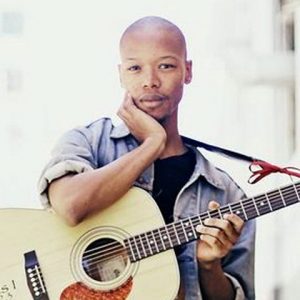 South Africa is preparing to host a music festival that celebrates
South Africa is preparing to host a music festival that celebrates 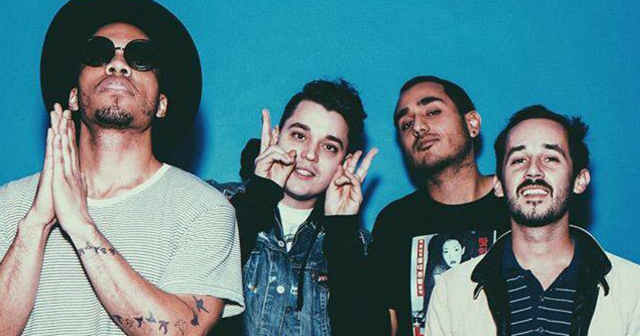
 The event is organised by Joburg Tourism in partnership with Gauteng Tourism and Constitution Hill to support local tourism and creative entrepreneurs during a traditionally quiet holiday period.
The event is organised by Joburg Tourism in partnership with Gauteng Tourism and Constitution Hill to support local tourism and creative entrepreneurs during a traditionally quiet holiday period.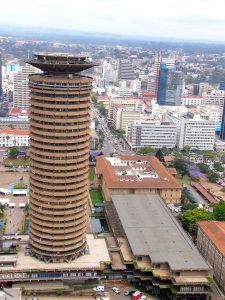 It is lunch time in the bustling African city of sky-clutching buildings, latest range of sport utility Vehicles and elegantly dressed ladies in high heels gliding in the corridors of shopping malls and city streets. While some people lie quietly, resting their heads on their shoes under the few shady trees in Jeevanjee Gardens, Uhuru Park and Central Park and others are listening to preachers, many more have their stomachs grumbling, are sipping a soft drink or are eating a meal of maize and beans called mahenjero by the abaLuyia, nyoyo by the Luo and githeri by the Gikuyu. Because it is mid-moth and most people are broke or almost penniless.
It is lunch time in the bustling African city of sky-clutching buildings, latest range of sport utility Vehicles and elegantly dressed ladies in high heels gliding in the corridors of shopping malls and city streets. While some people lie quietly, resting their heads on their shoes under the few shady trees in Jeevanjee Gardens, Uhuru Park and Central Park and others are listening to preachers, many more have their stomachs grumbling, are sipping a soft drink or are eating a meal of maize and beans called mahenjero by the abaLuyia, nyoyo by the Luo and githeri by the Gikuyu. Because it is mid-moth and most people are broke or almost penniless. I write this article, on the basis of Romans 13:7, to pay tribute to Gabriel Omolo Aginga, the social commentator, music Composer, benga vocalist and guitarist who created the popular and award-winning classic, Sasa ni Lunch Time (It is Lunch Time), who passed away on January 3, 2018.
I write this article, on the basis of Romans 13:7, to pay tribute to Gabriel Omolo Aginga, the social commentator, music Composer, benga vocalist and guitarist who created the popular and award-winning classic, Sasa ni Lunch Time (It is Lunch Time), who passed away on January 3, 2018. After performing with several music outfits for more than 10 years, the 1939-born Omolo formed Apollo Komesha, his own band, in 1971. The band went on to win the Golden Disc award for selling 150 000 copies of Lunch Time in 1974.
After performing with several music outfits for more than 10 years, the 1939-born Omolo formed Apollo Komesha, his own band, in 1971. The band went on to win the Golden Disc award for selling 150 000 copies of Lunch Time in 1974. Wengine wanakwenda kulala uwanjani
Wengine wanakwenda kulala uwanjani Watu wa Industrial Area watoroka maharagwe
Watu wa Industrial Area watoroka maharagwe Kumbe shida ndiyo hufanya
Kumbe shida ndiyo hufanya